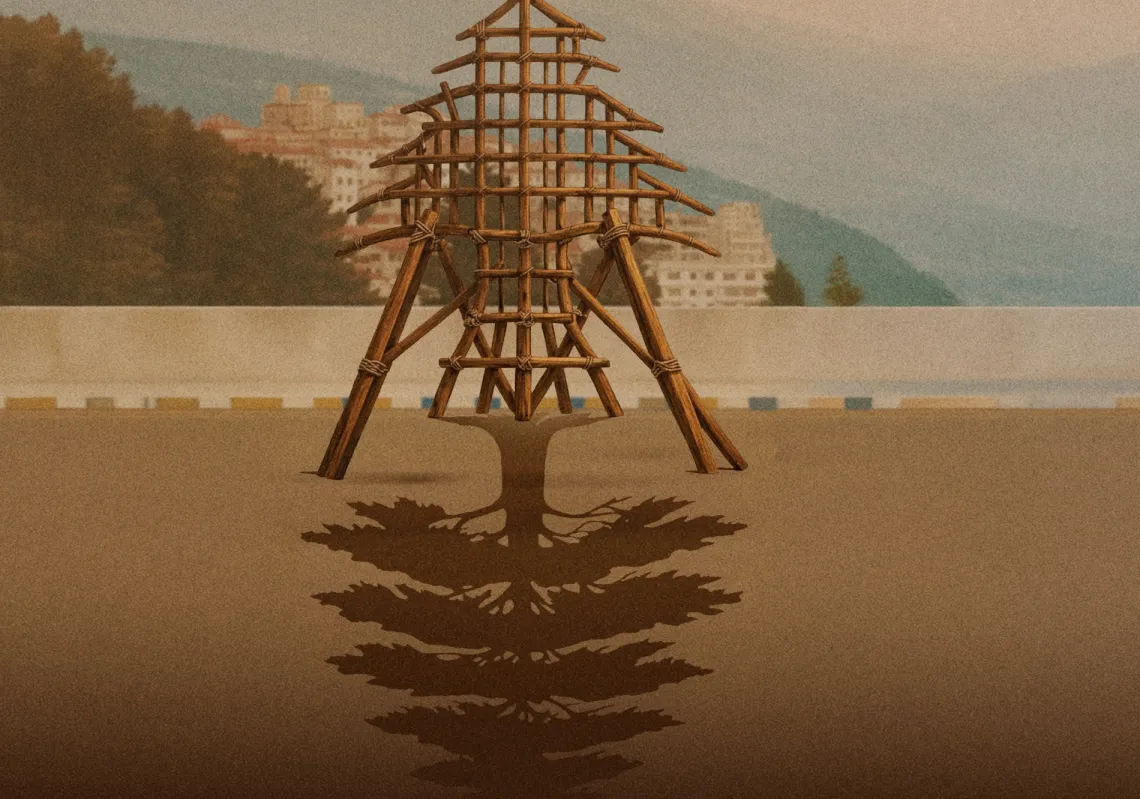Professor Charles Tripp, of the School of Oriental and African Studies (SOAS) in London, is a world-renowned expert on the politics and history of Iraq. As part of a small team of academics who personally advised Former British Prime Minister Tony Blair on the consequences of war prior to the invasion of Iraq, he is uniquely situated to comment upon the on-going Inquiry into the war. His recently updated book, A History of Iraq, is widely regarded as the definitive work on the topic.
The Majalla : American President Barack Obama hailed this month’s elections in Iraq as a “milestone.” Do you agree with this stance?
It depends on the outcome of the election. The 2005 elections were hailed as a milestone because of the way the Iraqis voted, but of course the aftermath was terrible. Partly that was because a whole section of Iraqis boycotted the election. The feeling amongst Iraqis at the time was that whatever the result of the elections was, they would be less representative than they should have been. In the case of the last elections, although fewer Iraqis voted, the spread was better from all communities across Iraq. So in this sense it is more hopeful, yes.
Q: How do you explain that despite improved security the general turnout was significantly lower than in the 2005 elections?
The reduction in turnout is related to the record of the previous parliament and the record of the local councils. People don’t vote if they feel that voting doesn’t mean much. I think people voted in 2005 to show defiance of the old regime and defiance of the terrorists. Now Iraqis are not voting probably for similar reasons that people don’t vote in many other countries; they feel that the people they have elected in the past haven’t done much.
Q: In contrast to general turnout figures, the participation of Sunnis was much higher than in 2005. How do you interpret this anomaly?
Well, I’m sure that’s to do with the fact that the Sunnis generally boycotted the 2005 elections. Now the feeling is that they’ve got to make their vote count. They could certainly have an effect on who holds power and I think the feeling of powerlessness was a real problem previously. So I think there’s now probably more incentive among the Sunnis to vote than anyone else.
Q: In A History of Iraq you wrote that the post-war elections of 2005 were “little connected to the life and death struggles of more local politics.” Is it your opinion that central government continues to lack the ability to shape events in the provinces?
Well, I think that’s changed a bit but one of the interesting things is that Al-Maliki was a strong centralist and really showed his true colors in 2008 when he started to re-conquer the provinces and tried to bring many local powers to heel. One of the noticeable features of the party lists is that the power balance is rather shaped within the provinces themselves. That’s why the case of Baghdad is quite interesting. Of course the field is much more open there in contrast to other places where you can see that the local politicians and local groups have taken their frustration out and exerted power on established parties.
Q: Apart from Al-Maliki, who are the key players in Iraq today?
The obvious key players are the leaders of the main coalitions. I think under Saddam Hussein you could say that there was always a shadow state behind the public state and you could argue now that that is still the case. Who are the real power brokers in the nationalist opposition? There are people who are quite happy to use violence if necessary and we simply don’t know who they are because they are quite a shadowy people. There is this sense that you have the obvious leaders of Iraqi society who head the coalitions but you also have people who can make life very difficult. They need to be taken into account on a much more local level.
Q: Do you think the use of violence to achieve political aims will ever cease in Iraq?
I think certain circumstances encourage some people to rely on violence more than others, and you could argue that under the present circumstances it has become less profitable to use violence. Many people have seen a better route to power than resorting to violence, but unfortunately under present conditions it is still a very potent force and instrument.
Q: In addition to a lengthy period of coalition building what do you expect to be the key challenges for the new Iraqi Government upon its formation?
A twofold issue is of course Kurdistan. How does the new government integrate the Kurds and the Kurdish region into Iraq once again? Beyond other struggles it should ensure that there isn’t a war in Kurdistan. The other issue is simply the question of whether the new government will be able to deliver basic resources to the Iraqi people; public services like sewerage, water and electricity are still diabolical. The feeling amongst many Iraqis is that their leaders ignore them.
I think most of the people who maneuvered themselves into positions of power at the head of these parties are people who have very little connection with the generality of the Iraqi people. Clearly there is concern about what kind of record in terms of public welfare the new parliament and the new government will be able to deliver.
Q: What will be the likely repercussions of the election results for Iraq’s relations with neighbors such as Syria and Saudi Arabia?
Any new government in Iraq will be careful to have quite good relations with their neighbors. However, one of the problems for Iraq is that it is seen by many as a playground for regional powers. If the Saudis believe that the Iraqi government is too close to Iran that could be problematic. If the Syrians believe that the new Iraqi government is too close to America then that could be problematic and so on. In a sense, I think this is one of the greatest challenges for a new Iraq government. How will the new government retain sovereignty and shape a national policy when regional powers are quite happy to intervene and encourage some of its opponents?
Q: How do you picture Iraq’s relations with Iran evolving once the new government is formed?
Whatever kind of coalition comes out of this bargaining they can’t afford to be seen to be in the pocket of Iran. Whether it is Al-Maliki in his new posture or Allawi or al-Sadr, none are puppets of Iran. They are actually Iraqi nationalists in many respects. You could argue that all of them have an interest in distancing themselves from Iran, not in a hostile sense, but in a way that they are aware that their credibility and authority falls apart if they are seen as being too close to Iran.
Q: What are your thoughts about the potential impact of the withdrawal of US troops from Iraq in August?
The feeling is that for many of the Iraqi politicians it is key that the Iraqi forces can do the job, and in some ways this seems to be happening in their own particular way. The key is to demonstrate that the Iraqi troops are not completely dependent on the Americans. My own perspective is that you won’t necessarily get that feeling of “oh my goodness the Americans have gone; now it’s going to be an upsurge of violence,” although obviously there will be people who will try it on just as we saw with the violence of the autumn of last year. There is a concern about whether the withdrawal of the Americans will make the Kurds more edgy and that feeds into the other major problem, which is the future of Kurdistan in Iraq.
Q: What are your thoughts with regards to the future of Kurdistan in Iraq?
I think it is very uncertain. There is a younger generation of Kurds who don’t speak Arabic and who don’t see Iraq as being part of their lives. Yet at the same time there is this older stratum of politicians who know perfectly well that if you go for independence you are doomed. There is also the question of whether the Barzanis and Talabanis have the authority to manage the clear unrest that there may be in Kurdistan if the Iraqi government starts to make inroads on it. There are plenty of friction points: Kirkuk, Mosul itself, Mosul province, the oil contract, the question of population, and the issue of what kind of balance there is to be between a Kurdish area of Iraq and greater Iraq. Of course it is quite possible that they will come up with a compromise solution, but there are so many potential flashpoints.
Q: Who do you think could be the most effective in curbing such flashpoints in Kurdistan?
Inevitably it will have to be the Kurdish leadership because they have to control their own constituencies. If they play a strong nationalist card it may be at a time when Jalal Talabani is feeling threatened by the Movement for Change in Kurdish politics. In this case there will be that danger that people will prefer to overplay their hand if they feel threatened and undermined.
However, you could also argue that there are Iraqi politicians such as Allawi and possibly Al-Maliki who have a much greater interest in playing the Iraqi national card and the danger comes if they believe that they have more interest in playing an Arab nationalist card—effectively splitting the Arab population. In pragmatic terms you could argue that the Kurdish leadership and the (more or less) secular Iraqi leadership has some interest in dampening down tensions. On the other hand, they are both ambitious and they are both insecure. There may also be circumstances in which they play up such flashpoints.
Q: British Foreign Sectary David Miliband has claimed that the UK’s involvement in the Iraq earned it respect in the Middle East. Do you think this statement can be justified?
I think you’ll have to ask the Middle East that. Miliband is of course bound to say this because he supported the war. Yet the reaction in many parts of the Middle East is that the UK followed the US and that the British are no better than puppets of the US in that sense. I do think there is disappointment in parts of the Middle East because their so-called vaunted “British expertise” of the Middle East counted for nothing in their administration of Iraq.
Q: What is your opinion of the British Iraq Inquiry so far?
What it has achieved so far is to give a public airing to things that people knew about already. I don’t think that it has uncovered anything dramatic and of course that wasn’t what it was intended to do. The Inquiry was supposed to explain, in a sense, how the British political establishment can learn lessons from the experience of the involvement in Iraq. The problem is that in much of the public mind it was regarded as something else altogether. So clearly much of the criticism has been focused on the lack of forensic investigatory punch, however many times the Inquiry says “no that’s not what we’re about.” Somehow they have dropped questions when they were looking to get something quite interesting, and so I think one of the problems for the outcome of it will be that people will think that it is a damp squib. So I think we have this real problem of the authority of the Chilcot Inquiry because many people expected it—maybe wrongly in terms of its formal commission—to be a much more hard-hitting, inquisitorial, blame-finding, judgmental committee, which it is not.
Q: During the Inquiry, Tony Blair justified the invasion of Iraq with the removal of Saddam from power. Do you agree or disagree with the statement that the means were justified by the end result?
Well the end result was very quickly achieved in terms of the removal of the dictator. But the trouble is that people stayed and hundreds of thousands of people were killed. The end result was terrible and so is it justified in terms of bringing death and destruction on hundreds of thousands of Iraqis? Possibly, because every time Tony Blair was questioned about that, he said Saddam Hussein killed hundreds of thousands of Iraqis, which he did, so you have a balance between two evils that attempts to judge it in these terms of a gruesome body count. Had Saddam stayed in power, how many hundreds of thousands of Iraqis would have been killed and as a result of the war how many thousands of Iraqis have been killed? It is a complete moral minefield and that’s when one has to look at international law in which it is illegitimate to invade another country because you don’t like a government and that is what happened. In that sense the war was certainly unjustified and I would say that in terms of the legality, in terms of the outcome, in terms of what was known at any particular time, by whom, for what purpose and what was concealed, there are still large questions that need to be answered.
Q: Finally, considering that you advised Blair prior to the invasion of 2003, how do you think the decision to depose Saddam Hussein will be judged in 20 years time?
I think it depends on who’s writing the history. For Blair personally, the hope is that history will vindicate him. I think two things will come out of this. One is the terrible fact that in history, hundreds of thousands of poor people dying often disappears from the public memory. Yet it hasn’t disappeared from the Iraqi memory and in many years time it will still be there even if the terrible actual physical consequence of the war may well in 20 years time be consigned to the annals of history. The other side of it is, the very fact is that Britain and America and others were able to get away with invading another country because they didn’t like its government, and clearly as far as that precedent is acted upon, it may be regarded as a terrible trend setter in what happens in the future.
Interview conducted by Hannah Mitchell







